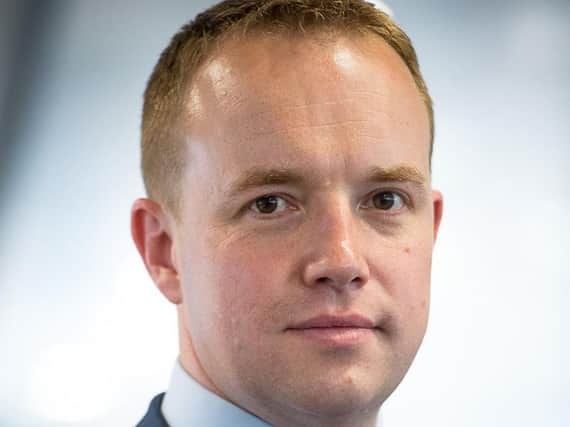The future of Scottish business could hinge on Scots MPs - Andrew Henderson


As recently as 2010, the SNP returned just six MPs on less than 20 per cent of the popular vote. This, despite having topped the Holyrood polls three years previously, and standing on the cusp of winning an unprecedented overall majority at the following year’s Scottish Parliamentary elections. Post-devolution, the Scottish public was clearly at ease in changing its voting preference, dependant on the legislature it was electing.
The change in voter behaviour that Scotland has witnessed over the past decade has been seismic, illustrated no better than in 2015 when support for the SNP surged by 30 points to secure half of the popular vote, and with it 56 of Scotland’s 59 Westminster constituencies.
Advertisement
Hide AdAdvertisement
Hide AdThe 2014 independence referendum introduced a second axis against which Scottish voters would align (“Yes-No”). Even though “Yes” had lost the referendum, the ability of the SNP to unite and mobilise this voter base was sufficient to return a landslide under first past the post, with “No” voters spread across the former Better Together parties.
In 2016, the EU referendum gifted a third axis: “Leave-Remain”. The job of untangling and polling the complex web of voter loyalties, beliefs and allegiances that constitutes the Scottish electorate, is now fiendishly complicated.
Already the third party at Westminster, it is quite conceivable that the SNP could hold the balance of power in the event of another hung parliament. Contingencies abound though, when we consider what this would mean in practice.
The potential role of Scottish MPs
Were Labour to repeat their 2017 election result, then the SNP alone would be unable to install Jeremy Corbyn into Number 10 with a working majority, even if the party were to secure every one of Scotland’s 59 seats. For a Lab/SNP agreement to be viable, either significant gains from both parties, or a third partner, would be required.
Securing such a third party is not without significant hurdles though. Jo Swinson (herself defending a Scottish seat within the top third of all UK marginals) has already ruled out a deal with Jeremy Corbyn, and the Lib Dems’ staunch opposition to a second independence referendum poses a major hurdle to any formal cross-party working with the SNP.
As we wait for the bigger picture to come into focus, there will be no shortage of localised drama. A quarter of the UK’s 100 most marginal constituencies are in Scotland and in 14 of these, majorities of less than 1,000 are being defended. Inevitably, attempts to slay “big beasts” will grab headlines.
The parliamentary votes of those we are about to elect could prove pivotal in future national decisions, especially on Brexit and international trade. As the post-election dust settles, Scottish businesses should take time to engage with returning and newly-elected MPs, and work to ensure all are aware of the challenges businesses face, and of the vital role they play in supporting the Scottish economy, connecting and supporting businesses globally and in wider civic society.
- Andrew Henderson, director of public policy at Pinsent Masons